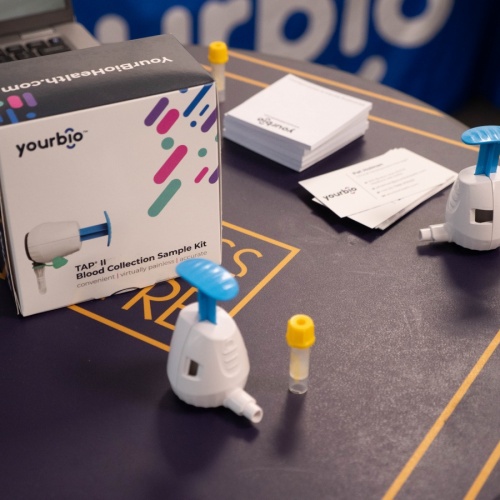Blog
Revolutionising osteoporosis screening: advancements in opportunistic screening using wrist radiographs
Check out the results from a clinical study of the IBEX Innovations Bone Health software and the potential benefits of opportunistic screening of osteoporosis from standard X-rays. Read more here.
Read more: Revolutionising o...Lewisham and Greenwich NHS Trust deploys CardMedic
Lewisham and Greenwich NHS Trust has gone live with the CardMedic translation app for healthcare. Lewisham public health funding has enabled the trust to extend the use of the solution among the wider nursing and community workforce. Read more here.
Read more: Lewisham and Gree...Webinar: Support for more professions to become NIHR Senior Investigators
Do you work in #socialcare, #nursing, #midwifery, an allied health profession or #methodology? NIHR are holding a webinar for those professions considering applying to become a Senior Investigator. Register here.
Read more: Webinar: Support ...Discover the Evolution of YourBio Health and the TAP® Devices!
At YourBio Health, they're proud of their journey and the strides they've made in remote blood sampling. Their story is one of dedication, innovation, and a relentless pursuit of excellence in creating solutions that make a real difference. Read their…
Read more: Discover the Evol...Ada Health expands leadership team on back of revenue growth
Ada Health, developer of an AI-powered symptom assessment and care-navigation platform, expanded its leadership team as the company hit profitability and reported a 260% rise in revenue year over year. Read more here.
Read more: Ada Health expand...GJE proud to be ranked consistently at No. 1 by the Financial Times
Congratulations to our friends! Gill Jennings & Every LLP is proud to have been recognised with the highest possible rankings by the Financial Times in its 2024 survey of Europe’s leading patent law firms. Read more here.
Read more: GJE proud to be r...Check out WoodSafe® The Biobased Medical Waste Bin 30 minute Webinar!
From Sawdust to Sustainable Future: Biocomposites’ Role in Plastic Disruption. Hear their experts explaining about biocomposite as an sustainable alternative to fossil-based plastics. You can find the full webinar here.
Read more: Check out WoodSaf...How to Choose a Tech Vendor for your HealthTech Project
Join Beetroot webinar to learn how to select a tech partner adept at managing the complex landscape of Health Tech. Time: 27 June, 2024, 17:00 (UTC+2), Online This session is designed to provide you with actionable insights and clear guidance on…
Read more: How to Choose a T...Complimentary Interpersonal Skills Online Taster Session
Exciting opportunity for British Bulgarian Business Association (BBBA) members! The British Council is hosting a complimentary interpersonal skills online taster session on 26 June, focused on enhancing communication and interpersonal abilities in a professional setting. Don't miss this chance to…
Read more: Complimentary Int...FDA expands approval for GSK’s RSV vaccine to cover younger at-risk adults
The Food and Drug Administration expanded the approval for GSK’s vaccine to protect against respiratory syncytial virus, or RSV, authorizing its use for at-risk adults as young as 50. Read more here.
Read more: FDA expands appro...Webinar | Interested in applying for the Clinical Entrepreneur Programme this year?
Are you a healthcare professional interested in innovation? Looking to apply for the NHS Clinical Entrepreneur Programme? ‘CEP Prep’ is introductory learning webinar series. Delivered by the NHS Clinical Entrepreneur Programme CEP Prep Programme is a free programme which aims…
Read more: Webinar | Interes...AI deployed to help combat malaria in Africa
Researchers in the US are using artificial intelligence (AI) to revolutionise mosquito surveillance to help combat malaria in Africa. Read more in the Health Tech Wolrd blog post here.
Read more: AI deployed to he...
